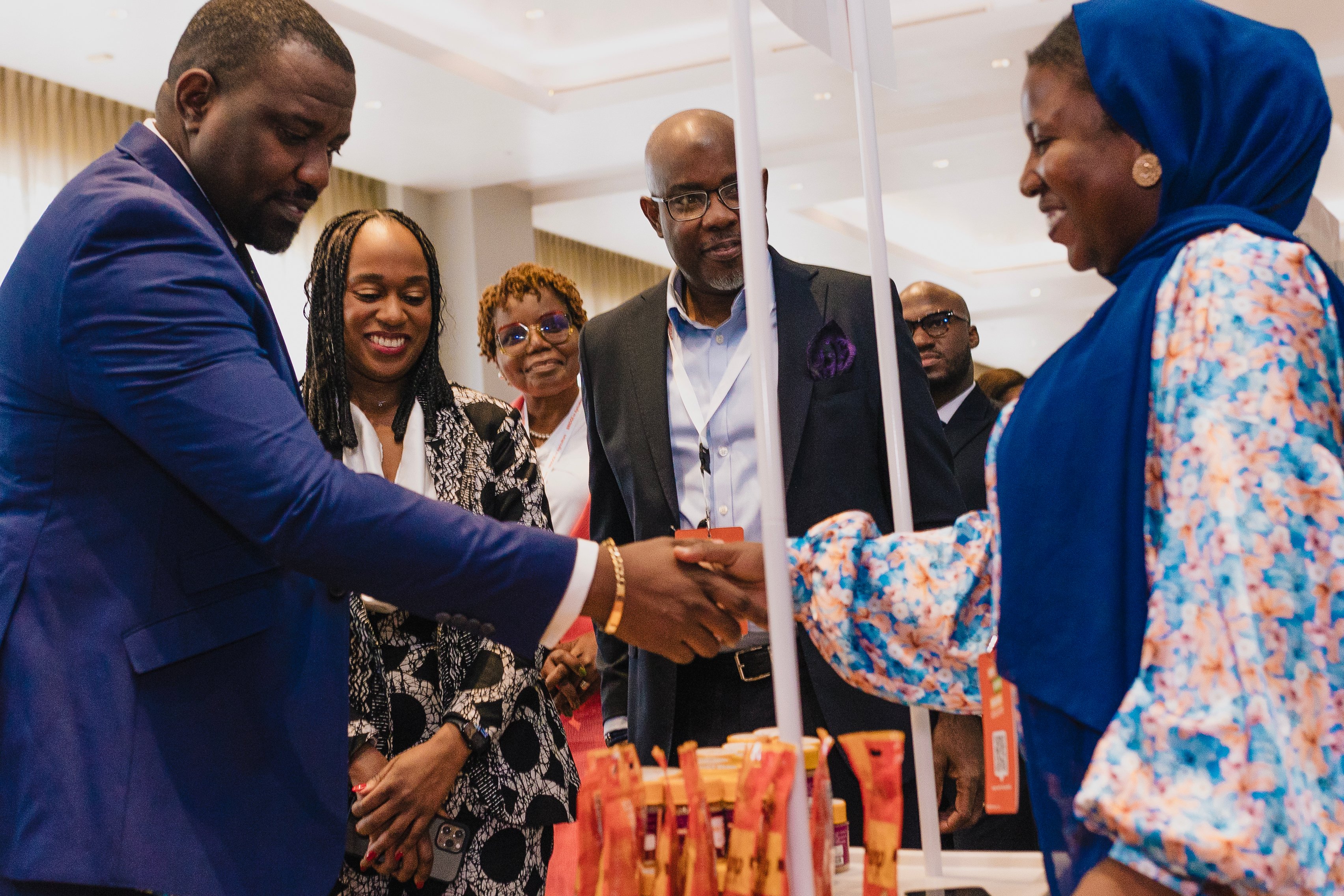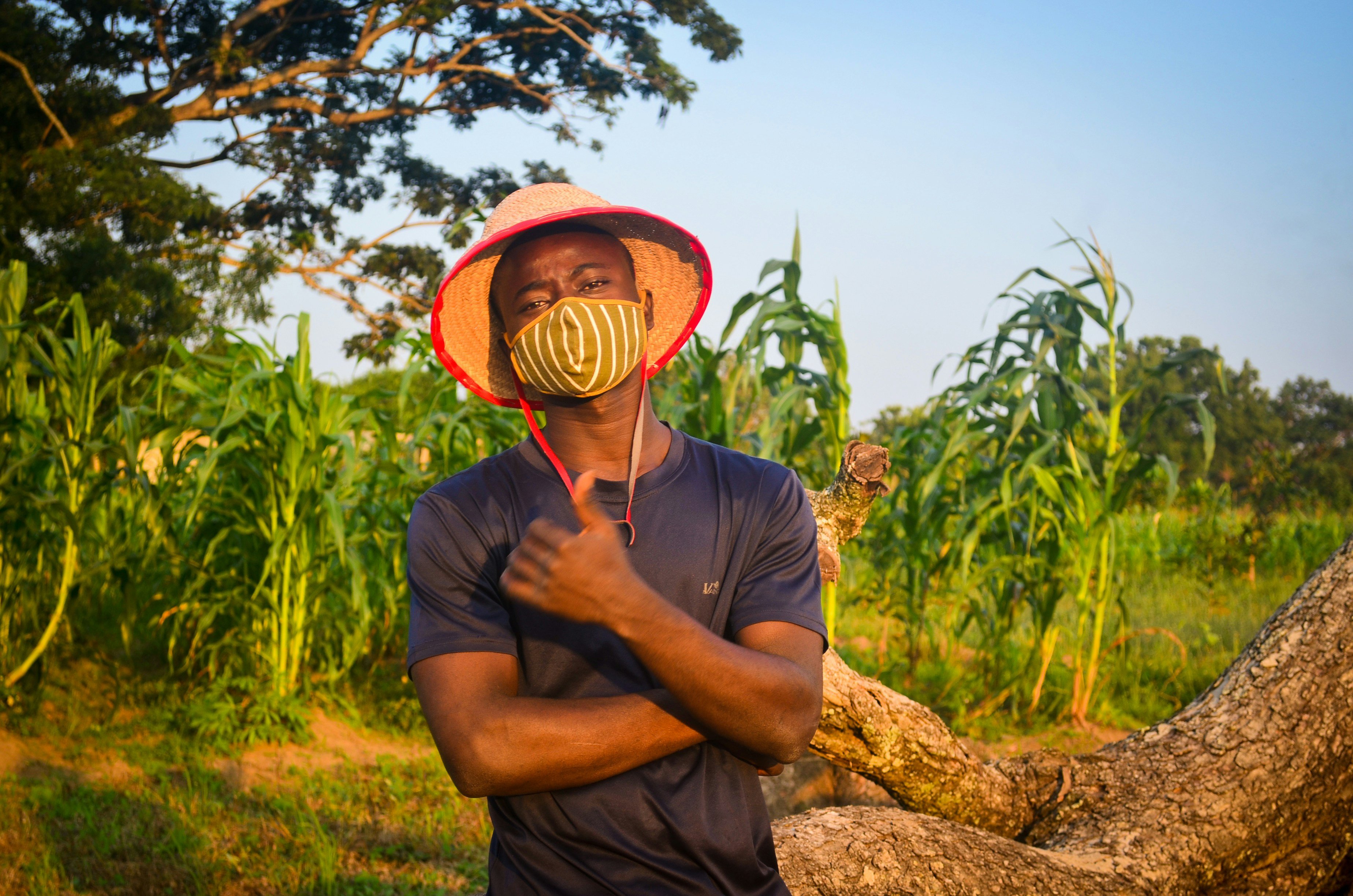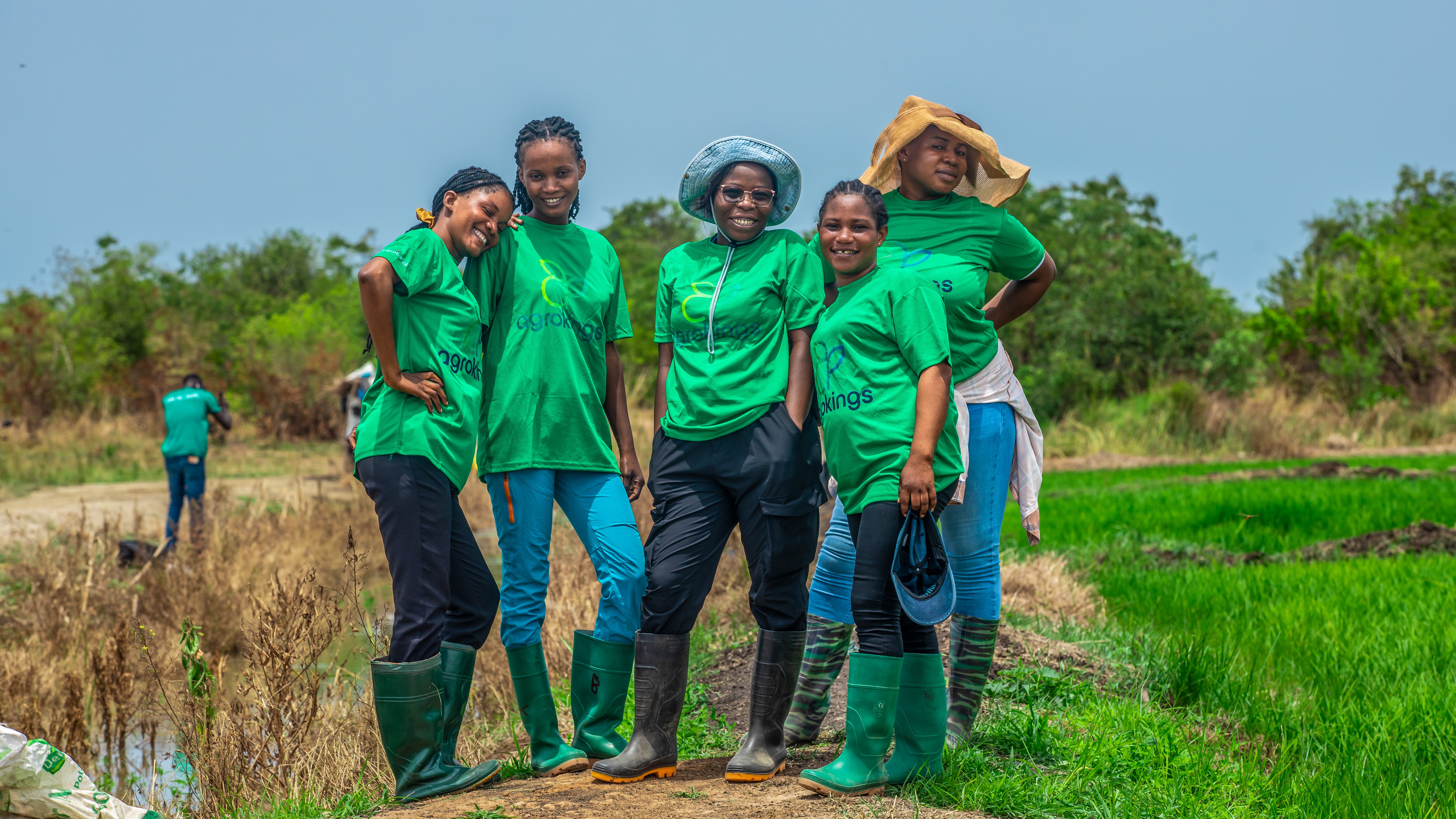
Redefining gender impact in Ghana’s agricultural sector
Building Resilience and Investing in Development and Growth in Entrepreneurs in Agriculture (BRIDGE-in Agriculture), is a 5-year Mastercard Foundation program, demonstrating a pioneering approach to expanding youth and women's participation in Ghana’s agricultural sector.
Building Resilience and Investing in Development and Growth in Entrepreneurs in Agriculture (BRIDGE-in Agriculture), is a 5-year Mastercard Foundation program, demonstrating a pioneering approach to expanding youth and women's participation in Ghana’s agricultural sector.
Through strategic funding and support, this initiative aims to increase access to resources and opportunities for women farmers and entrepreneurs. The program is not only focused on direct lending to female entrepreneurs—it’s reshaping the entire ecosystem by transforming male-led businesses into powerful allies for women’s advancement.
CrossBoundary Advisory leads the program implementation alongside a consortium of partners, including Access Bank, Fidelity Bank, First National Bank, Africa Skills Hub, Mind Builders Africa, and Peswa.
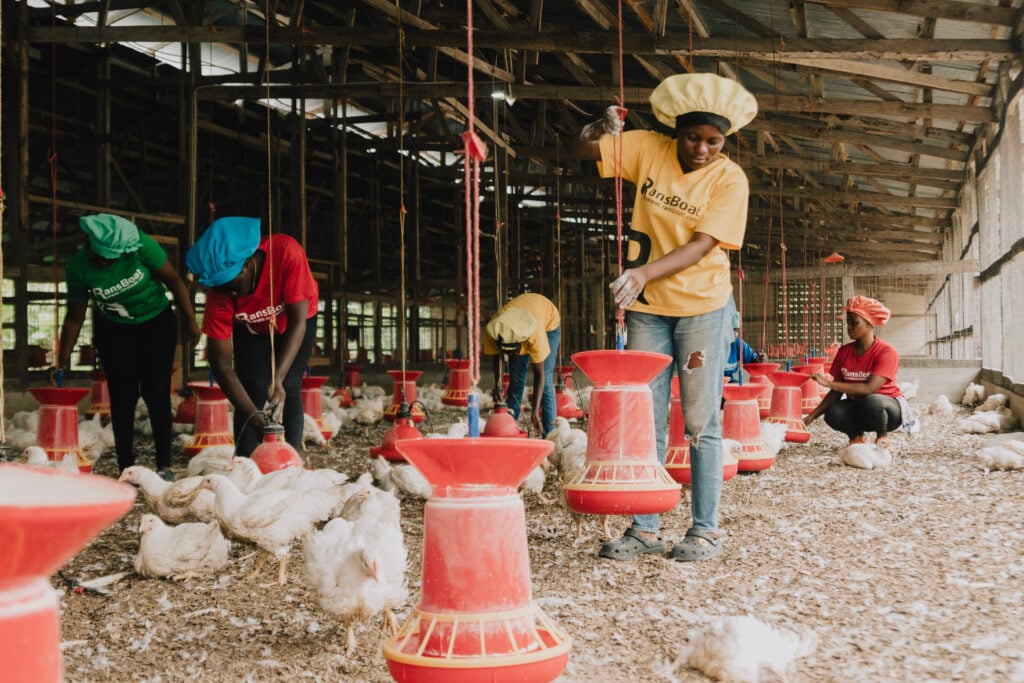
Courtesy of Mastercard Foundation
A two-pronged strategy for lasting change

Fanta Conde, BRIDGE-in Agriculture program lead and co-head of CrossBoundary Advisory’s West Africa practice
This recognition influenced the program’s distinctive two-pronged strategy for gender impact. While 36% of loans are directed to female-led agribusinesses, BRIDGE-in Agriculture also strategically funds male-led enterprises that demonstrate strong commitment to women’s employment and engagement with women smallholder farmers. This approach effectively doubles the program’s impact on women’s economic participation.
Working with champions for change
Saving Grains, a male-led enterprise that initially focused on maize trading, is an example of how, with the support of a loan from BRIDGE-in Agriculture, the company was able to expand its operations into soya trading and transform its business model to empower women smallholder farmers in the Pishigu community.
For female farmers in Pishigu, the essential inputs, training in good agronomic practices, and marketing support provided by Saving Grains has created new opportunities.
The biggest challenge for our farming activities was funding processes such as fertilizer and ploughing,” shares Jamila, a soya farmer. “It is difficult to access loans in this community, people will listen to your needs without offering any support. If you are not able to finance it yourself, the only option is to reduce your farm size.
Beyond access: training and market transformation
The program’s impact extends beyond just providing financial support. BRIDGE-in Agriculture has equipped over 13,000 youth – 75% of them female- with crucial knowledge about modern farming practices and market dynamics.
Previously, the local market controlled pricing,” explains Ayishatu, another soya farmer in Pishigu. “The training was an eye-opener, now, we know to weigh our crops before we sell them.
This shift to standardized measurement practices has ensured fairer pricing and better returns for women farmers.
The training has also improved farming practices significantly. As Fuseini, a local farmer, notes, “We did not measure the quantity of fertilizer to use on the farm. The training taught us how to apply fertilizer [to crops].” These improved practices have led to dramatic increases in yield. “Previously, I used to harvest 100kg to 300kg from my soy farm. With BRIDGE-in Agriculture’s support, I harvested about 800kg last season,” shares Aminu, highlighting the tangible impact of the program.
Transforming lives beyond the farm
For these women farmers, increased yields and better market access have also contributed to improved family welfare. Faiza, a soya farmer in Pishigu, reveals this broader impact:
I am able to contribute to the education of my children and afford nutritional food for my family. As a woman, when you are able to provide food, your husband is happy, and there is peace at home.
Impact of innovative financing
While individual stories like Faiza’s demonstrate the personal impact of the program, the broader numbers reveal its scale. As of December 2024, the program’s strategic loan initiative has supported 42 enterprises in creating or sustaining access to over 41,000 jobs for youth. As one recipient, the owner of Gustav Restaurant, a youth and women-led business, shares:
The loan has been invaluable for my business. I have expanded my product lines and opened a new snack bar at my Spintex branch, where I have hired 3 new employees. I plan to expand production in other branches and employ more people.
The investments have catalyzed tangible business growth: 36% of loan recipients have invested in essential business equipment, from transport vehicles to storage units, tractors, and processing machines. Another 8% have expanded their operations through new product lines and outlets.
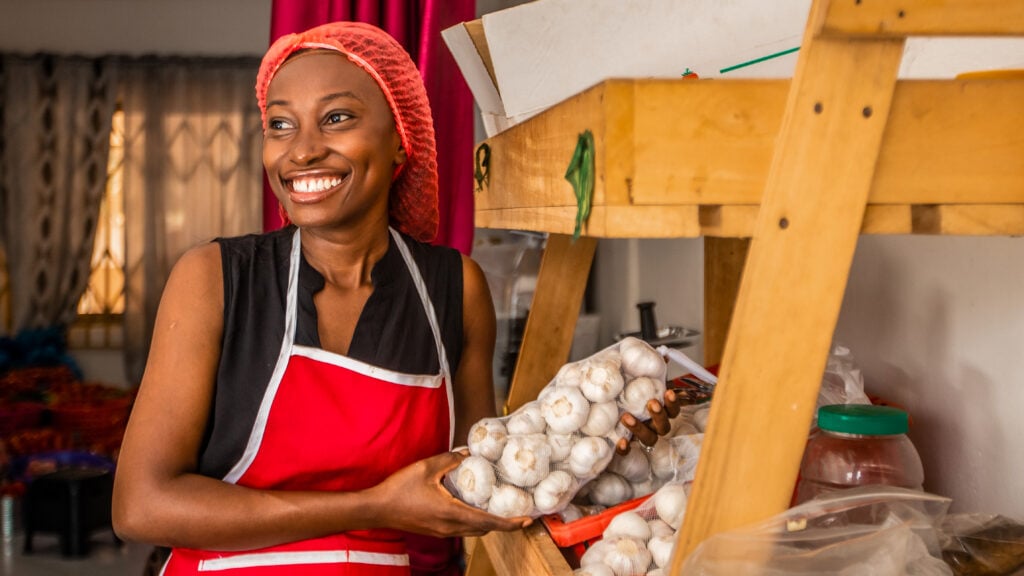
Courtesy of Mastercard Foundation
By working through existing market structures while simultaneously pushing for change, the program is creating sustainable pathways for women’s economic empowerment. Women farmers are now active participants in market negotiations, armed with knowledge about fair pricing and modern farming practices. They’re not just producing more, they’re becoming savvy agricultural entrepreneurs.

Bernard Aitey-Adjin, Senior Program Manager, Mastercard Foundation



